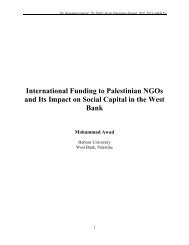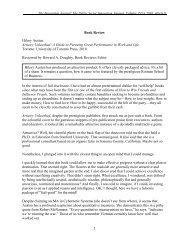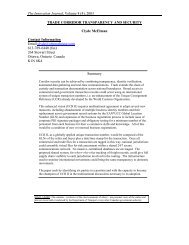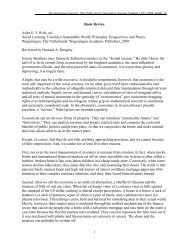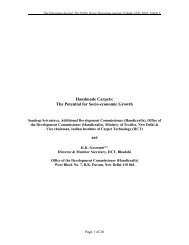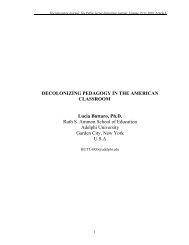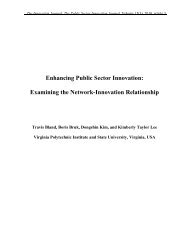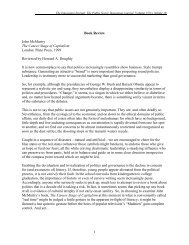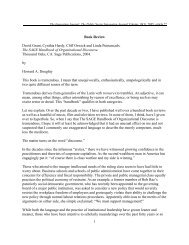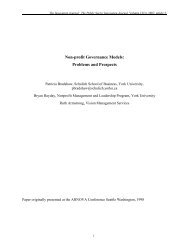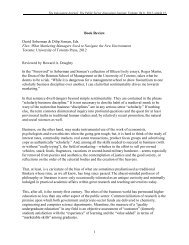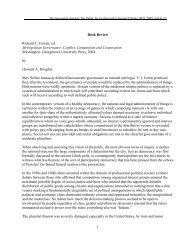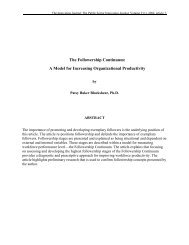William Easterley, White Man's Burden - The Innovation Journal
William Easterley, White Man's Burden - The Innovation Journal
William Easterley, White Man's Burden - The Innovation Journal
Create successful ePaper yourself
Turn your PDF publications into a flip-book with our unique Google optimized e-Paper software.
<strong>The</strong> <strong>Innovation</strong> <strong>Journal</strong>: <strong>The</strong> Public Sector <strong>Innovation</strong> <strong>Journal</strong>, Volume 12(2), 2007, article 14.<br />
hear whether the planned got what it needed; Searchers find out whether the customer is<br />
satisfied.”<br />
This, observes Harvard’s esteemed economist Amartya Sen, is at best a gross oversimplification.<br />
He adds that Easterly’s “overblown attack on global ‘do-gooders’ obscures the real point: that aid<br />
can work, but only if done right.” Sen outlined some of the major methodological, logical and<br />
rhetorical flaws in <strong>White</strong> Man’s <strong>Burden</strong> in an article published in the March/April, 2006 issue of<br />
Foreign Affairs. I will repeat only the one he admits is less important, but which has the virtue of<br />
brevity. Easterly points out that “there was no Marshall Plan for Harry Potter, no International<br />
Financing Facility for books about underage wizards.” Moreover, he says with evident sincerity,<br />
“it is heartbreaking that global society has evolved a highly efficient way to get entertainment to<br />
rich adults and children, while it can't get twelve-cent medicine to dying poor children.” Just so.<br />
<strong>The</strong> market is a terrible place to find a cure for heartbreak.<br />
To this unusual display of sentimentalism, Sen responds that “the disparity in the results is indeed<br />
heartbreaking. But jumping from there to arguing that the solution to the latter problem is along<br />
the same lines as the solution to the former reflects a misunderstanding of what makes the latter<br />
so much more difficult.” He then adds that “J. K. Rowling was on welfare support and received a<br />
grant from the Scottish Arts Council when writing the first Harry Potter novel.” Apparently,<br />
untargeted aid sometimes hits the mark.<br />
Unsympathetic critics charge that Easterly exaggerates, which he does. <strong>The</strong>y say he uses<br />
inappropriate comparisons, which he does (the absence of foreign aid may not be the real reason<br />
that China has gained economic power). <strong>The</strong>y also argue that he has become a shill for neoliberal<br />
ideologues and greedy global corporations which dislike any effort to enhance the lives of the<br />
poor, especially if such programs run the risk of leading to state-mandated increases in wages,<br />
trade union rights, safe working conditions, employment equity, environmental protection and so<br />
on, which is probably an unfair accusation but not wholly out of the range of possibility (even<br />
capitalists have their “useful idiots”).<br />
Sympathetic critics agree with many of Easterly’s case studies of waste, profligacy and selfaggrandizement<br />
among professional helpers. For those who recall the book and know the origin<br />
5



